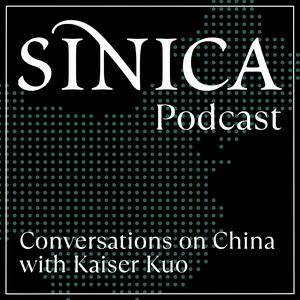Chinese and U.S. AI Applications in Public Administration: Lessons and Implications for Ukraine
Artificial intelligence has been a frequent topic on Sinica in recent years — but usually through the lens of the two countries that have produced the leading models and companies: the United States and China. We’ve covered generative AI, national strategies, governance frameworks, and the geopolitical implications of AI leadership.This webinar, broadcast on the morning of August 14, broadens that lens to explore how other countries — and especially Ukraine — are approaching AI in the public sector. Around the world, governments are experimenting with AI well beyond chatbots and text generation: China’s “City Brain” optimizes traffic, energy use, and public safety; U.S. agencies are streamlining services and automating benefits processing; and elsewhere, smart grids, predictive infrastructure planning, and AI-enabled e-governance are reshaping public administration. These projects reveal both the promise and the complexity of bringing AI into government — along with valid concerns over privacy, fairness, and inclusiveness.We’ll look at what lessons Ukraine might draw from U.S. and Chinese experiences, the opportunities and challenges of adapting these practices, and the strategic risks of sourcing AI solutions from different providers — especially in the context of Ukraine’s eventual postwar reconstruction.Joining us are three distinguished guests:Dmytro Yefremov, Board Member of the Ukrainian Association of Sinologists, with deep expertise in China’s political and technological strategies and Ukraine’s policy landscape.Wang Guan, Chairman of Learnable.ai in China, bringing extensive experience in AI applications for public administration and education.Karman Lucero, Associate Research Scholar and Senior Fellow at Yale Law School’s Paul Tsai China Center, whose work focuses on Chinese law, governance, and the regulation of emerging technologies.Thanks to the Ukrainian Platform for Contemporary China, the Ukrainian Association of Sinologists, and the Center for Slavic, Eurasian, and East European Studies at the University of North Carolina–Chapel Hill for organizing and sponsoring today’s event. Special thanks to Vita Golod for putting together the panel and inviting me to moderate.See Privacy Policy at https://art19.com/privacy and California Privacy Notice at https://art19.com/privacy#do-not-sell-my-info.


